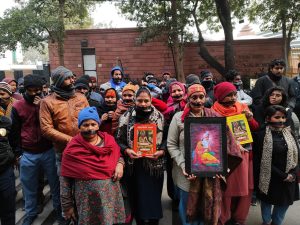[Readmelater]
Delhi Anganwadi Workers To Move Court Against Termination Orders

Anganwadi workers and helpers at the site of the indefinite strike
Support BehanBox
We believe everyone deserves equal access to accurate news. Support from our readers enables us to keep our journalism open and free for everyone, all over the world.






